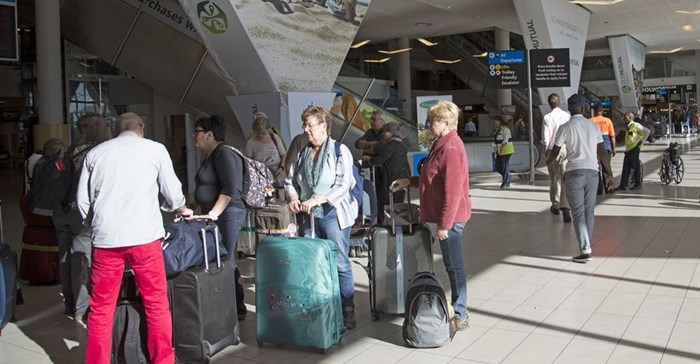Passenger service charges, aircraft parking and landing fees levied by the Airports Company SA (Acsa) will drop 35.5% in April, a decision that could relieve pressure on domestic ticket prices.
Service charges for a passenger embarking on a domestic flight will decrease from R127 to R82. The transport regulator signed off the decrease, the first since 2010, on December 23.
But although it is good for the passenger, such a drop will significantly decrease Acsa's revenue and risk compromising repayment of its R11bn debt. Acsa's minority shareholders have already called for its board to consider challenging the decrease.
Acsa, which runs nine commercial airports in SA, has been operating on a 0% increase since 2014, while it waited for the minister of transport to sign off on the regulator's proposed five-year structure. It has previously said that slashing rates would have an adverse effect on cash collections. A single breach would make its entire R11bn debt book immediately payable, compelling Acsa to seek a bail-out or government guarantee.
Acsa did not respond to requests for comment, but told shareholders on Wednesday it would assess the implications and determine an appropriate response.
Acsa requires higher tariffs to repay R17bn incurred during its aggressive infrastructure drive to upgrade airports ahead of the World Cup in 2010.
The regulator had originally proposed slashing tariffs 42% in 2015, followed by a 4.1% and a 15.8% increase over the next two years. In the fourth year, the regulator would grant Acsa a 15.9% tariff hike, while in year five the entity would be allowed to increase fees 4%. Now after two years of interim tariffs freezes, the tariff will drop 35.5%, followed by increases of 5.8% and 7.4% in the final two years of the five-year cycle respectively.
This means, however, that overall tariffs will have dropped 27% by 2020, as opposed to the 15% reduction in the previously drafted five-year cycle.
Alun Frost, adviser to minority shareholder African Harvest Strategic Investments, said on Tuesday the tariff drop posed a risk to the commercial sustainability of Acsa - currently a state entity that did not require government bail-outs - and was at odds with the Airports Company Act. The act requires the regulator to, among other things, set a tariff at a level that ensures Acsa does not abuse its monopoly position, encourages efficiency, but that also would allow for Acsa to earn a commercial return in each financial year.
Source: Business Day




































